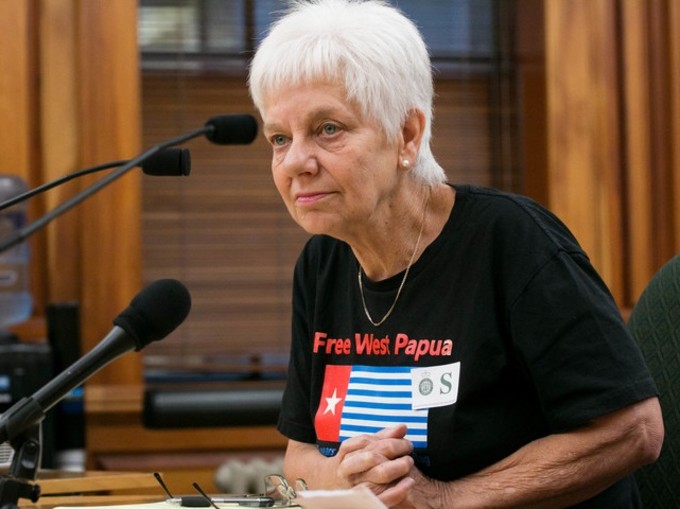
By Michael Andrew
AUCKLAND (Asia Pacific Report/Pacific Media Watch): As Timor-Leste celebrates 20 years since the landmark vote that determined its independence from Indonesian rule, activists are urging the New Zealand government not to repeat mistakes from the past and not back West Papuan independence until the last minute.
West Papua Action Auckland’s Maire Leadbeater said the New Zealand government largely ignored the “shocking violence” in Indonesian-ruled Timor-Leste in favour of fostering bilateral and military ties.
“The government sort of stuck with its very quiet do nothing say little approach,” she said.
READ MORE: Timor-Leste turns 20: Colonial past feeds problems of neocolonial present
Heavily involved in the Timor-Leste independence campaign, Leadbeater said it was not until the violence and international pressure reached critical levels that the New Zealand government started to openly support the idea of an independence referendum.
Parallels have been drawn between Timor-Leste’s journey to independence and the ongoing movement in West Papua, which has culminated in violent protests and demonstrations over the past fortnight.
The protests were sparked when an Indonesian militia attacked West Papuan students in Surabaya, pelting them with stones and calling them “monkeys”.
Papuan deaths and injuries have already been reported after Indonesian authorities deployed military personal to quell the demonstrations. The internet has also been shut down to prevent pro-Papuan support from spreading, prompting condemnation from rights and media groups the world over.
While the New Zealand government has stayed relatively quiet on the issue, Leadbeater said now was the time for it to speak up and condemn human rights violations rather than wait until they got worse.
“They don’t want to be left again do they, not changing until the absolute [last minute] and allowing the awful things to occur?”
West Papua Action Auckland has written an open letter to Jacinda Ardern urging her to condemn the racism that started the protests and end the internet blackout which is hampering journalists covering the story.
The current protests are the latest developments in the West Papuan quest for independence, which has been fought since the 1960s when Indonesia claimed the former Dutch colony as its province through a widely discredited referendum.
Activist and former Green Party MP Catherine Delahunty said that the protests were a critical development in the struggle for West Papuan self-determination.
“This is not a moment for neighbouring countries to be silent. This is a moment that neighbouring countries should urge Indonesia to stop human rights abuses.”
While the government could not change Indonesia’s internal policy, she said Ardern should at least encourage Indonesia to allow a visit from the UN Human Rights Commission.
This would ensure the bloody process by which Timor-Leste gained its independence would not be repeated in West Papua, she said.
“I hope that East Timor is not the future for West Papua in the sense that a hundred thousand people were murdered in the process of East Timor getting its independence.
“There is still this unspoken and unrepentant history really in the sense that there has never been recognition of how bad it was.”
Indonesia invaded Timor-Leste on December 9, 1975, nine days after it declared independence from the outgoing Portuguese administration.
Known as Operasi Seroja, it was largest military operation ever carried out by Indonesia.
It resulted in an undetermined number of Timorese casualties, with reports of Indonesian military indiscriminately killing civilians in the occupied cities.
The soldiers involved in the invasion are celebrated as heroes in Indonesia. According to news site KBR, the special forces unit involved in the invasion of Dili, the "nanggala" team, was honoured at the presidential palace two weeks ago for its service during the operation.



